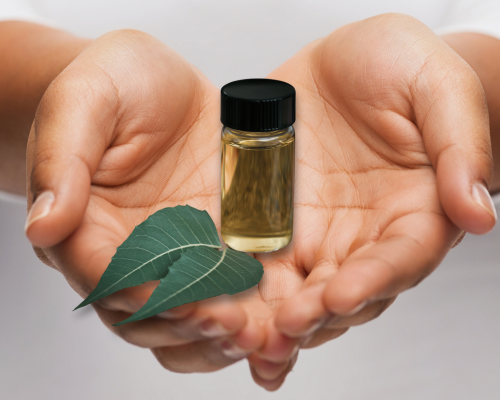Is Neem safe?

Neem: A Safe and Effective Remedy for Many Health Conditions
Is neem safe? In a word, yes; Neem has been used for centuries in traditional Indian medicine to treat a variety of ailments. However, while it's generally considered safe, it's important to use it correctly to avoid any potential side effects.
Here's what you need to know:
Safety Considerations
• Internal Use: Neem oil is not recommended for internal consumption unless it's prepared with the same care given to food oils. Opt for neem alcohol extract, neem tea, or capsules instead.
• External Use: Neem oil can be applied directly to the skin. For chronic skin problems, dilute it with vegetable oil (eg sunflower or olive oil) initially to avoid a skin disease rebound effect.
• Children and Pregnant Women: Neem should not be given internally to children under 12 or used during pregnancy.
• Autoimmune Diseases: Neem should be used with caution in individuals with autoimmune diseases due to potential interactions.
• Diabetics and Epileptics: Neem can lower blood glucose and decrease seizure frequency. Use with caution if you have diabetes or epilepsy.
• People wishing to conceive: Neem can have a temporary contraceptive effect when taken internally.
How to Use Neem
• Internal: Take neem alcohol extract, neem tea, or capsules in reasonable quantities for short periods (7-10 days). For longer periods, consider pulsing dosage (using neem for 5 days out of seven or 3 weeks out of 4).
• External: Apply neem oil directly to the skin or dilute it with vegetable oil for sensitive skin.
• In animals: Neem appears to be as safe for pets and livestock as it is for people. Mostly used to reduce external and internal parasites, it has great health benefits for our pets as well.
In general, neem contains many active compounds and should be used judiciously, especially in those who are not familiar with neem, and who have no family history of neem usage. Patch testing and using neem diluted is sensible until you can determine you are not sensitive to neem.
Traditional uses: Neem has a centuries-long history of traditional use in India and other parts of the world. The leaves are eaten by animals as forage and birds and humans eat the fruit when in season. Seed kernels and leaves are occasionally used as a bitter spice in some of the hotter Indian foods and after meals many people eat 1 or 2 seed kernels to help digestion. Bathing with neem leaves is a routine practice for treating and preventing skin disease in India.
Toxicity studies confirm the low toxicity of neem extracts, taken in limited doses and for short periods of time. Alcohol extracts tested for the EPA showed no irritation in rabbits and no toxicity when taken internally by mice, even in high doses.
Neem has so many potential benefits to health and such a high safety margin that we think it completely deserves its title as ‘the village pharmacy’
Remember: These recommendations are general and not intended to prescribe or diagnose, there is plenty of information available on the internet for those wishing to research whether neem can help them maintain or regain health. While neem is generally safe, it's always a good idea to consult with a healthcare professional before starting any new herbal remedy, especially if you have underlying health conditions.
